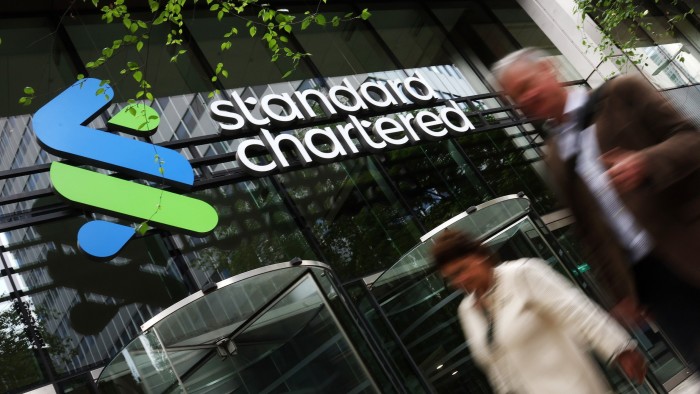Unlock the Editor’s Digest for free
Roula Khalaf, Editor of the FT, selects her favourite stories in this weekly newsletter.
Bill Winters took charge of Standard Chartered a decade ago this month. Back then, the London-listed lender was battling concerns about high costs, weak capital levels, regulatory problems, anaemic growth in core markets and a stubbornly low share price.
In some respects, not much has changed. StanChart’s underlying cost-to- income ratio in 2024 was the same as in 2014. Its share price has risen just 20 per cent since Winters became CEO and was below his starting point as recently as April. The property market in Hong Kong — the bank’s largest market — has been flashing warning signs. The bank is even still fighting a lawsuit linked to historic sanctions issues.
Yet this underplays its performance. The share price decline early in Winters’ tenure was a hangover from his predecessors, who had refused to grasp the nettle on the need to raise capital and restructure StanChart’s sprawling business. Measured from its late-2015 rights issue, the bank’s stock has slightly outperformed HSBC and an index of Asia-focused banks, and risen more than twice as much as the Stoxx 600 Banks index of Europe-listed lenders.
Unlike rival HSBC, which is struggling to show how it will drive future growth, StanChart now has a fairly clear focus on two growth areas: banking large international companies and managing wealth for “affluent” individuals. Net income is forecast to grow an average of 10 per cent per year between 2025 and 2028, according to Visible Alpha data, compared with 1.5 per cent at HSBC.

StanChart says its diversification should limit the impact of any local downturns or disruptions to trade in a specific corridor such as China to the US. The bigger risk would be another global crisis like the coronavirus pandemic, which hit the Asia-focused bank particularly hard.
A multilateral trade war could be another such shock, but governments have stepped back from the edge. Winters told investors last month that “a prolonged period of uncertainty could have a direct impact on growth in our markets, [but] we enter the current period of global volatility from a position of strength”.
His pitch may still not appeal to traditional bank investors, many of whom focus on income. A dividend yield of 2.4 per cent is one of the lowest among more than 50 European banks tracked by Citi. But it has been drawing in more growth-focused investors, with large recent investments from the likes of Capital Group and T Rowe Price.
The one historic issue Winters has never managed to overcome is StanChart’s valuation discount. The company’s current price of about 0.9 times book value is close to its highest level in years but still lags the 1.1 times multiple of the broader European banks index. With a new chair in place, Winters’ season is widely believed to be nearing an end, but he might have just enough time to close the gap before he goes.
